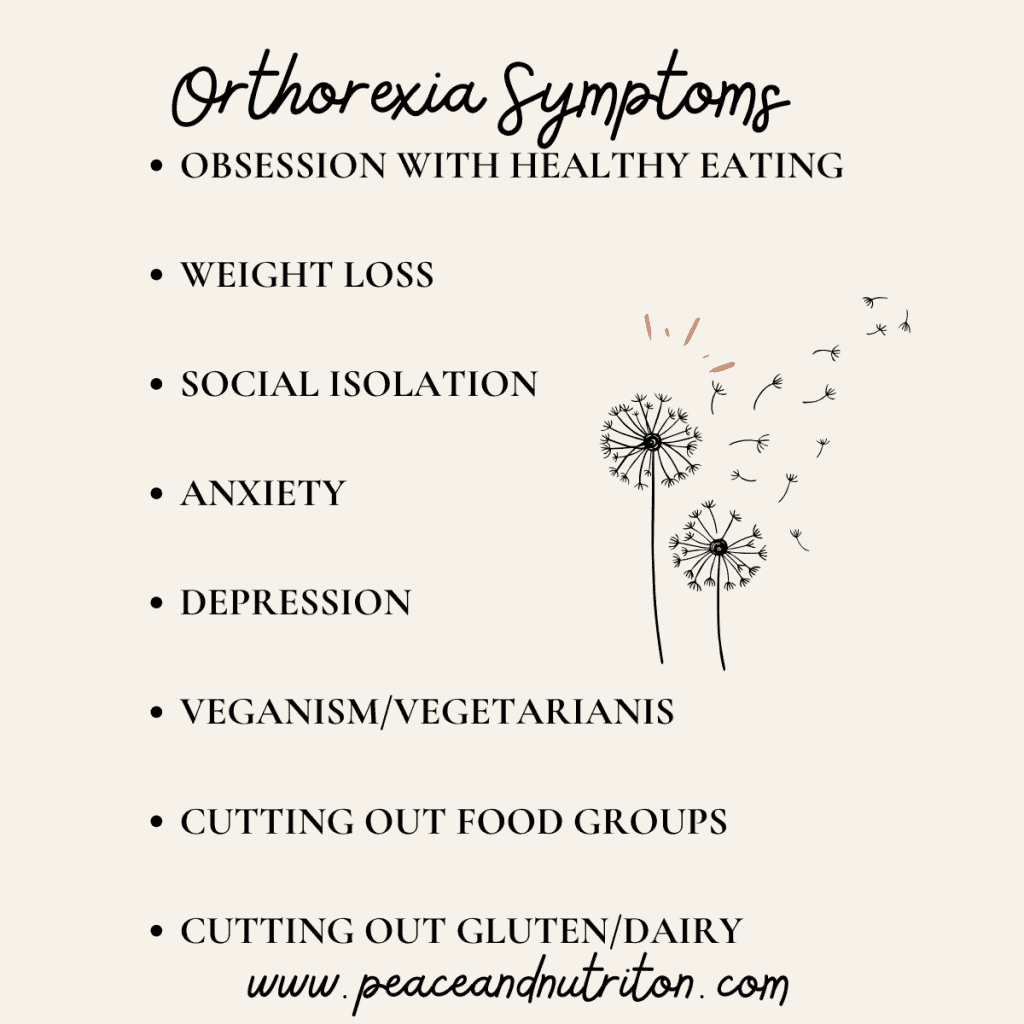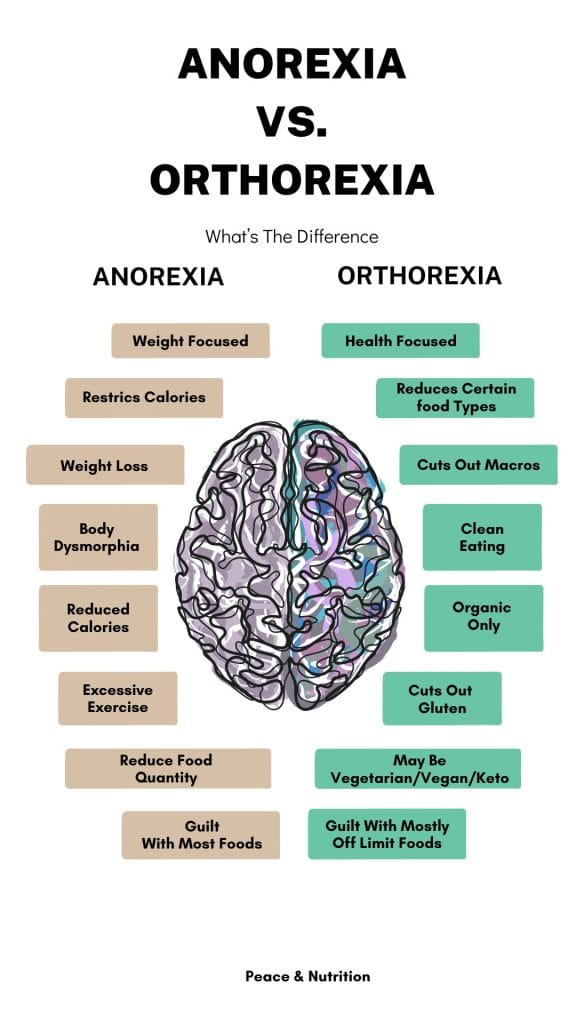Table of Contents
Last updated on September 21st, 2025 at 05:27 pm
Orthorexia is a term used to describe an unhealthy obsession with eating foods that are considered pure, clean, or healthy. While wanting to nourish your body is a positive goal, this focus can sometimes become extreme—leading to anxiety, guilt, or rigid food rules that disrupt daily life. Do you have an unhealthy obsession with eating?
If you’ve ever wondered whether your healthy habits might be crossing a line, this quick quiz can help you reflect on your relationship with food. This quiz is for educational purposes only and is not a substitute for medical advice or a professional diagnosis.
How The Orthorexia Quiz Works
Answer true or false to each question about your eating habits and medical history. Tally up the number of times you answer “true.” If you notice you are answering “true” to more than 60% of the questions, you should seek professional support for further eating disorder assessment.
Answering yes to most of the questions on this quiz does not mean that you have orthorexia. It also does not mean that you are not struggling with a different type of eating disorder. It is simply a tool to help you identify food restriction and some disordered behaviors around food.

Orthorexia Quiz Questions
- I think about whether my food is “clean” “pure” or “healthy” constantly
- I feel guilty, anxious or ashamed if I feel I’m eating something “unhealthy”
- I have food rules such as not eating cake or only 1 bowl of chips is allowed at parties and social events I must follow
- I am preoccupied with gut health or food allergies I haven’t been medically diagnosed with
- I get tired of foods because I only have a few acceptable foods I will eat
- I judge myself or others if I don’t consider their foods “wholesome” or “healthy”
- I follow a strict vegan or vegetarian diet for health reasons
- My self worth is attached to how “healthy” my diet is
- I believe food is fuel and nothing more
- I avoid food groups because they are harmful or unnecessary
- I don’t eat any added sugar, ever, or I feel extremely guilty
- My relationships struggle because I get anxiety about not eating “the healthiest”
- I watch people closely that prepare my food and get anxiety if they put “off limits” ingredients in
- I spend more time planning, shopping for, or preparing “clean” meals than engaging in other hobbies or interests
- I won’t go to a restaurant or get extreme anxiety if I can’t get something “clean” or “healthy”
- I would never eat fast food, even if I thought it tasted good
- I get anxiety if food isn’t labeled organic or natural
- I check labels constantly looking for ingredients like sodium, saturated fats, or added sugars
- I try never to buy foods with a lot of ingredients I can’t pronounce on the label
- I think I need to “detox” or “cleanse” my body sometimes
Orthorexia Vs. Anorexia
Orthorexia and anorexia are both serious eating disorders, but they differ in their focus and underlying motivations. Orthorexia is characterized by an obsession with eating only foods considered healthy, clean, or pure, with the goal of achieving optimal health rather than weight loss. People with orthorexia often avoid foods they see as “unhealthy” and may develop rigid eating rules that cause anxiety if broken.
In contrast, anorexia nervosa is driven by an intense fear of gaining weight and a distorted body image, leading to severe calorie restriction, significant weight loss, and often excessive exercise or purging. While both conditions can result in nutritional deficiencies, emotional distress, and social isolation, anorexia typically carries more immediate physical risks due to extreme weight loss. However, the two often overlap, and you might be experiencing symptoms of both.
Orthorexia and Anorexia Similarities
- You can’t stop thinking about food
- You feel guilty after eating something that’s not a safe food
- You may hate your body
- Intense fear of gaining weight
- You desire perfectionism
- You feel like it’s impossible for you to just eat normally

Orthorexia and Anorexia Differences
- Orthorexia focuses on “healthy foods” whereas anorexia focuses on shrinking your body
- Anorexia is diagnosed according to the DSM-V using weight criteria
- Orthorexia has no weight criteria
- Orthorexia is not a formal diagnosis in the DSM-V fut instead diagnosed as OSFED
- Weight loss may or may not be a desire of someone with orthorexia
- Orthorexia may not result in weight changes
- Anorexia is characterized by weight loss

How to recover from orthorexia
If you have taken the quiz and you are concerned that you might have orthorexia, here are some steps you should take:
- Tell someone you trust about your struggling with food
- Get a professional support team that specializes in eating disorders
- Seek out meal support from someone you trust to help you challenge fear foods
- Stop any compulsive exercise
- Keep a list of eating disorder recovery quotes that inspire you
- Practice joyful movement instead of exercise to bulk up or lose weight
- Journal using body positive journal prompts
- Practice honoring all types of hunger
- Use eating disorder recovery songs or recovery bible quotes to stay motivated
- 10 Tips To Cope With Bad Body Image Days - September 29, 2025
- Managing Bloating in Anorexia Recovery - September 15, 2025
- The Orthorexia Quiz: Created by A Dietitian - August 25, 2025